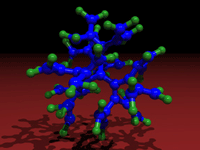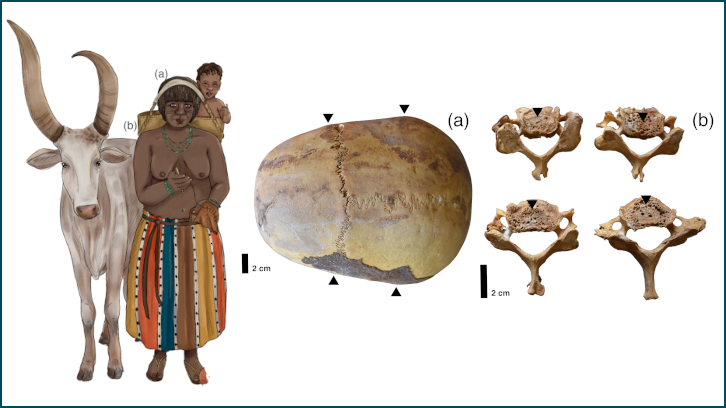Dendrimer: a nanotechnological product against Alzheimer

Alzheimer's disease is the most frequent cause of dementia in those over 65 and it is estimated to affect 20% of those over 85. Those affected by this disease suffer neuronal degeneration which leads to a slow and progressive loss of memory, orientation and language.
In the brain of patients affected by the disease an accumulation of what are known as amiloide or senile plaques occurs, which are insoluble protein deposits, and which are also found in other pathologies such as Parkinson's, diabetis mellitus II, prionic diseases among which we can find mad cow disease. The proteins involved in these amiloidogèniques diseases do not have a similar structure or sequence, but even so have in common the fact that they change the native structure and conformation and give rise to amiloide fibres with very similar molecular characteristics which are toxic for the organism.
In recent years Alzheimer's disease and spongiform encephalopatias have been widely studied from the genetic and biochemical point of view given their great social and economic impact. Many of these studies attempted to study and understand the molecular mechanisms which led to the formation of these fibres in order to design new therapeutical strategies. One of the new areas opened up in this field is the study of dendrímers, syntetic branched polimers, which have also recently been studied as a genetic therapy for some types of cancer or in the treatment of AIDS.
In our laboratory and in co-operation with a research group from the University of Lodz, in Poland, we have studied the effect of dendrímers on the process of amiloide fibre formation based on two model peptides derived from the amiloide peptide associated with Alzheimer's disease and the human prionic protein. In our study we have found that these new polimers have an modulating effect on the process of fibre formation.
Depending on their concentration, dendrímers may accelerate or retard the formation of amiloide fibres. This means they are a potentially powerful tool in the design of strategies to attempt to manage 'in vivo' fibre formation, with the aim of avoiding or cancelling out their cytotoxic effects.
References
Article: Klajnert, B; Cortijo-Arellano, M; Bryszewska, M; Cladera, J., "Influence of heparin and dendrimers on the aggregation of two amyloid peptides related to Alzheimer's and prion diseases", Biochemical and Biophysical Research Communications, 339 (2): 577-582, Gener, 2006.


